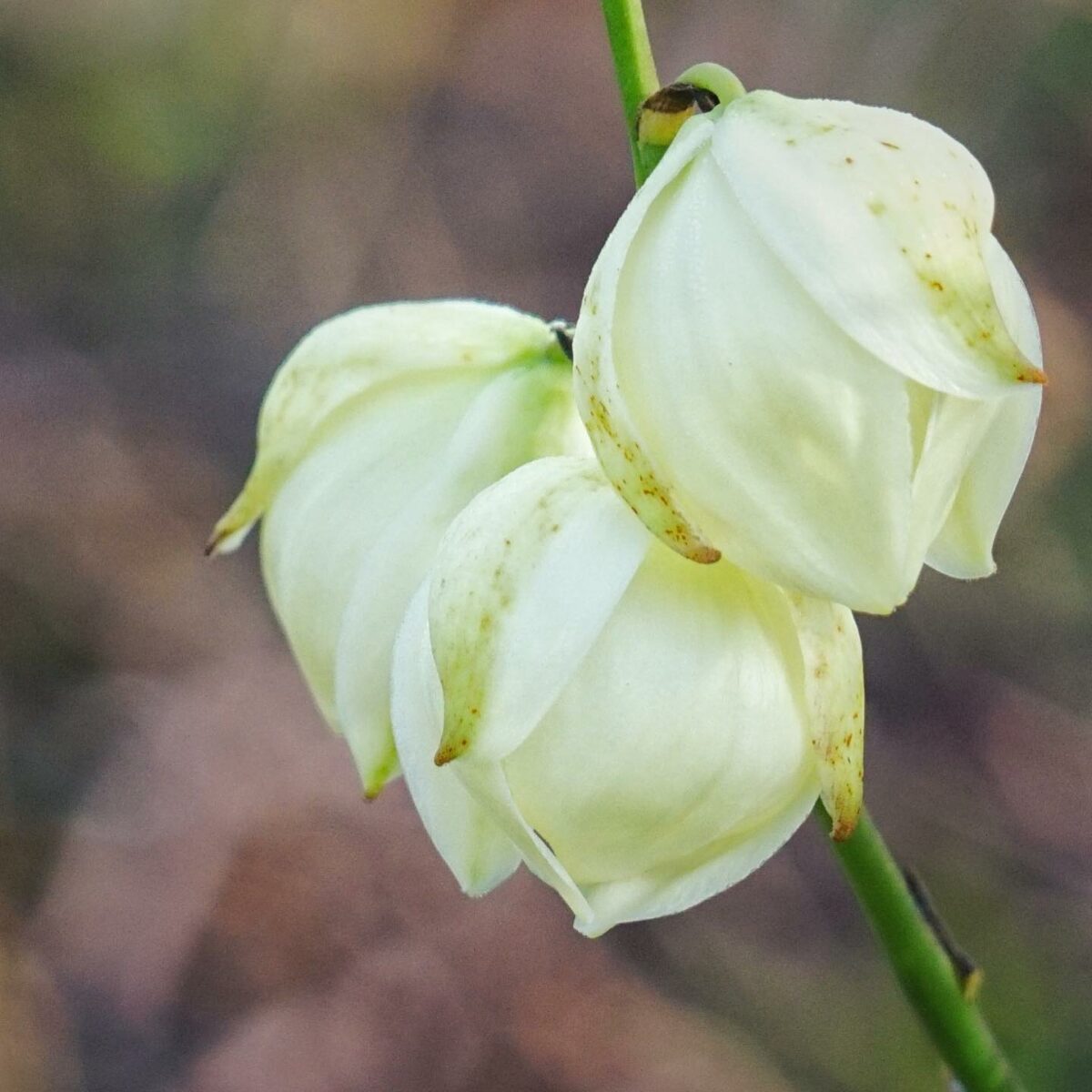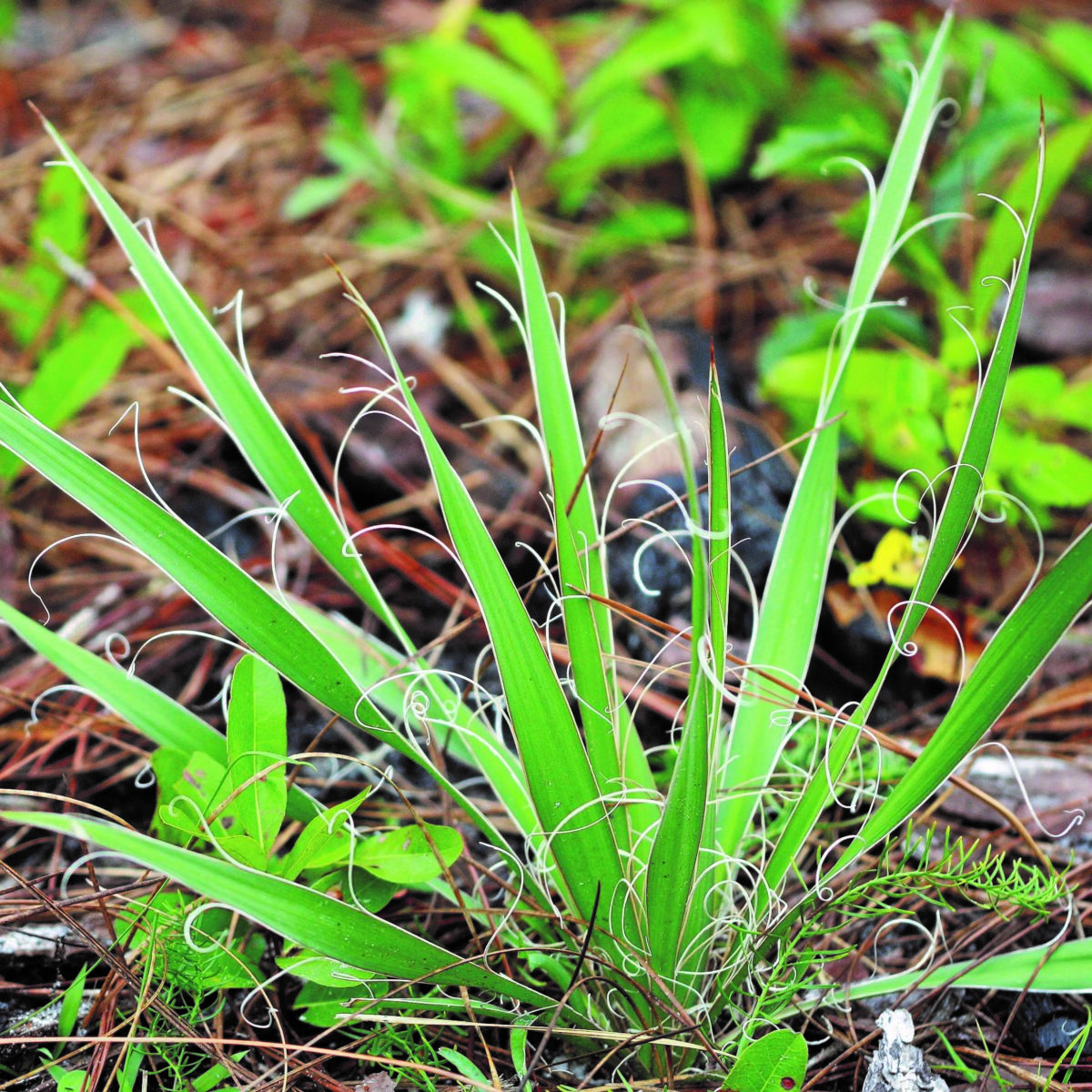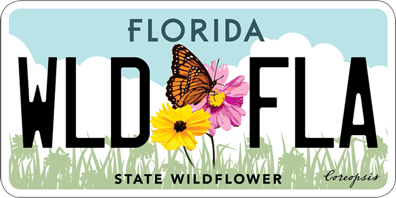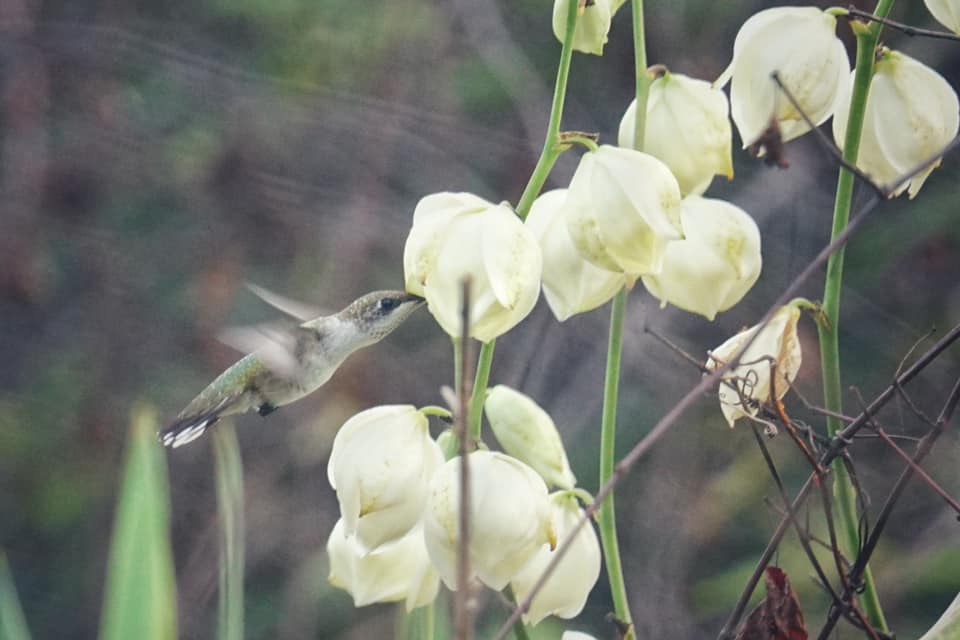Adam’s needle
Pictured above: Adam’s needle (Yucca filamentosa) by Emily Bell. Click on terms for botanical definitions. View post as a PDF.
Adam’s needle (Yucca filamentosa) is a low-growing evergreen shrub found in scrub, sandhills, flatwoods and coastal dunes throughout much of Florida. As a landscape plant, it provides interest with its unique swordlike leaves and striking flowers. The blooms are frequented for their nectar by hummingbirds and butterflies such as the Great southern white. It is pollinated in part by the Yucca moth and is a larval host plant for the Cofaqui and Yucca giant skipper butterflies.
The showy white flowers are born in large (2 to 5 feet tall) terminal panicles. Individual blooms are six-parted, bell-shaped, and droop downward. They are often tinged with purple. Basal leaves are long (2 to 4 feet), lanceolate, and arching with sharp pointed tips. Margins are entire with many fibrous filaments. Leaf venation is parallel. Stem leaves and trunk are generally absent. Taproot is large and fleshy with many lateral roots. Seeds are born in green capsules that turn black when ripe.


Some sources place this species in the Agavoideae subfamily of the Asparagaceae family. Although parts of Yucca filamentosa are edible, this plant is not related to the culinary plant, yuca, which is another name for Cassava (Manihot esculenta).
Family: Agavaceae (agave family)
Native range: Nearly throughout Florida, except southernmost counties.
To see where natural populations of Adam’s needle have been vouchered, visit florida.plantatlas.usf.edu.
Hardiness: Zone 8A–10B
Lifespan: Perennial
Soil: well-drained, acidic to near neutral sandy soils
Exposure: Full sun to minimal shade
Growth habit: 2–3′ tall; 6’± when in bloom
Propagation: Division, seed
Garden tips: The distinct foliage and flowers of Adam’s needle make it a nice accent plant either as an individual specimen or in a group. It is tolerant of drought but has a low tolerance of salt winds.
CAUTION: Because of its sharply tipped leaves, Adam’s needle is not recommended for areas where children may play
Adam’s needle is occasionally available from nurseries that specialize in Florida native plants. Visit www.PlantRealFlorida.org to find a nursery in your area.

